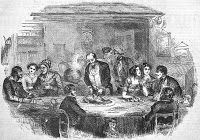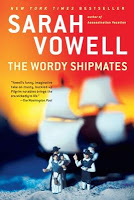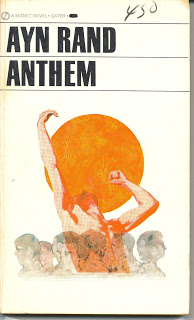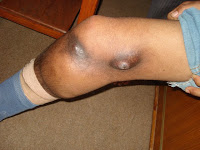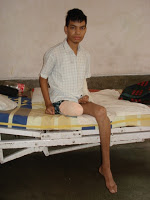Giving Season… Within Reason

I don’t want to sound like Scrooge, but the Thanksgiving season, with its #GivingTuesday, turkey brigades and appeals for charitable giving, is ripe for savvy people to take advantage of those who have plenty and want to help. Not always in a bad way; not everyone who needs help is trying to scam us. Most of the requests I get are indeed from people who need either factor or money. But… at what point am I enabling someone to not solve their own problems and learn from the experience, or to be dependent, or to just be not clear with their request, wasting time and resources?
I’ll give you some examples. Just this week I was hit with multiple requests for help. Most popular request? Factor. People contact me via email, Facebook messenger, WhatsApp, text. I don’t always see the requests when it comes at me from all sides. Requests for factor often do not have a clear message: what dosing size is needed? Is the child under a hematologist care? Who is the hematologist? What’s their email so I can verify the request? What address do I ship it to? How about telling me what country are you from first?
Who else is the patient asking? A request to me, while I get busy trying to match assay size and prepare shipments, could also be made to others without my knowledge, and scarce resources end up with one person collecting a lot.
One request this week was made from a patient from overseas who I’ve known for about 20 years. He’s legit—and wonderful. And he’s now living in the US! Becoming a citizen. But while waiting for the paperwork to clear, he needs factor. That I cannot do. Sending prescription medicine over state lines without a license is illegal. So I direct him to his local chapter and a public hospital. He’s okay with that and understands.
Requests for money are increasing. One patient from a developing country this week needs money for a relative with cancer. Testing bills are mounting. Even though I’ve known this patient a long time, I need proof. Doctor’s reports, invoices from the labs, the works. He provides them but they are not in US dollars, and it appears to be like a million dollars! So again, repeated requests for clarification. When he converts it, it’s manageable, so I will wire the money, but I cannot support the full treatment sadly.
There was a request this year from a US charity for hemophilia for a donation. I like giving to our local hemophilia organization, New England Hemophilia Association, and will help support other ones sometimes, especially when patients I know are engaging in walks and such as fundraisers. However, this charity has not published an annual report. An annual report will reveal sources of income by category, and expenses by category. It’s a good way for donors to see where their money comes from and how they spend it. You can compare this info with other like charities to decide if they are being wise with the public’s money. Without an annual report, and accompanying financial statements, I’m not supporting any organization.
And I am always leery of “emergencies” as in send money right away! Speed is a killer. This week came such a request from someone who is not a patient, but used to work in the hemophilia community. I have met her only once. In my entire life. She contacted me years ago when a child relative was in a serious accident (in a developing country) and needed an operation ASAP. She didn’t know who to turn to, and she knew I gave a lot to charity, especially for kids. I checked it out and it was legit. I wired the money… to the hospital for the operation, not to her. The operation was successful. Five years later, with no further contact, a request this week for money. To help with living expenses, for her. To help pay off her bills. I’m wary of the words “You are the only one who can help” and any accompanying Bible quotations about charity. And multiple frantic calls. I have met this person only once: does she have a shopping addiction? Gambling? Drugs? Living day to day and knowing how to manage your money is a maturity problem, not a charity situation. And I’m done raising children.
Years ago I paid the rent for an immigrant hemophilia family who had just arrived in the US from a war-torn land, who just needed a boost. The request was verified by both the local hemophilia organization and the landlord. I paid the landlord three months’ rent. I received a heartfelt thanks and never heard from the family again. They were on track and doing well. No news is good news in this case.
So while it is a month of giving, be careful. Be extra careful when someone tries to FastTrack you. Ask for invoices, receipts, a third party, a hospital administrator in finance to verify, a doctor’s letter on letterhead to confirm diagnosis. A nonprofit should always have an annual report ready for download from its website. Read it. See what they spend their money on. Ask questions, lots of them. That way you can be assured that the money you donate goes to those who really need it.

